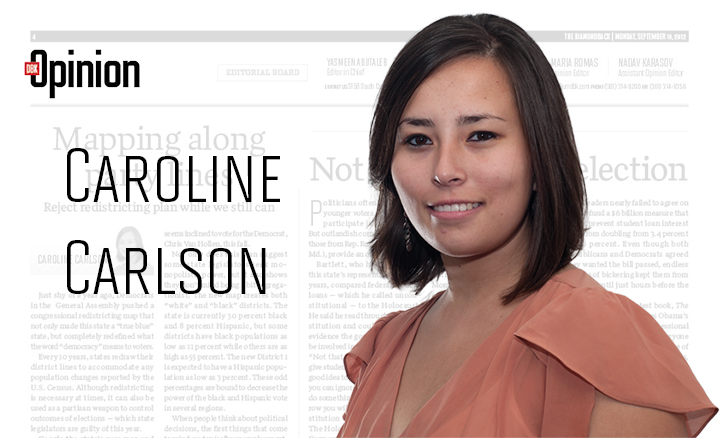
Senior government and politics and information systems major
Ever since the general election ended two weeks ago, I assumed all political commentary on my Facebook and Twitter news feeds would have stopped by now. Nonetheless, I still witness conservatives lamenting the supposed “destruction of our country” and liberals continuously rejoicing in the victory of their “dear leader.”
Scrolling through news channels, all I’ve seen recently are analysts articulating how “divided” our country has become post-election. Politics has become dirty, compromise has become nearly nonexistent and any idea of people with different ideologies working together has vanished from our minds.
Whether we’re referring to Congress or the Student Government Association, gridlock seems to be everywhere. The fiscal cliff, which could impose new tax increases and spending cuts come next year, has led to a “gridlocked America,” according to Ezra Klein of The Washington Post. SGA also caused controversy after members voted down funding MaryPIRG’s two salaried positions last year but supported creating a committee to determine the university’s future relationship with the lobbying organization.
As much as students hate the current state of political discourse, where candidates seem to bicker more than ever, I’d like to say gridlock and division can, at many times, be a good thing for society and the student body.
Compromise is important, but it’s only efficient if individuals aren’t compromising the entirety of their beliefs. Compromise for the sake of compromise isn’t the best plan. Complete bipartisanship in Congress, for instance, gave us senseless laws, such as No Child Left Behind, the PATRIOT Act and the Troubled Asset Relief Program.
Even in the university atmosphere, should we compromise on issues with our friends just because we know our positions may be unpopular? Should we refrain from sharing our beliefs just because we fear the judgment of our peers?
Our federal government is a republic, not a direct democracy. Our justice system requires unanimous consent to convict someone of a crime, therefore ensuring the individual with the minority opinion is confident he or she won’t be hampered down or intimidated by the voice of the majority.
Of course, there are some exceptions to promoting gridlock. Compromise that ensures adequate trade-offs works; compromise that forces one group to “cave in” more than another does not. If you want to pass tax increases on the “wealthy,” then you should put cutting discretionary spending on the table.
Additionally, the perception that our country has entered into a period of hate and division because of the election is completely preposterous. People tend to cite political ads and sound bites of politicians when they argue that politics have become so heated.
But didn’t Thomas Jefferson call John Adams a “blind, bald, crippled, toothless man” in the election of 1800? Didn’t the Illinois State Register call Abraham Lincoln “a second Benedict Arnold” for his spoken disapproval of the Mexican-American War? Political division and attacks existed way before this election.
Yes, the election caused almost half of the country to feel infuriated, but at least we can be thankful our country isn’t literally divided.
Intellectual discourse is a fundamental principle of American society, and urging people to compromise in fear of consistent gridlock hinders the belief that we are open to a forum of interchanging and learning other ideas.
This theory applies on the campus as well. A university classroom is a medium we use to share our ideas, no matter how extreme they may be. Constantly promoting compromise rather than disagreement and debate creates a student body that fears disagreeing with the mainstream and prefers censoring their views just to appeal to the status quo.
Caroline Carlson is a sophomore government and politics and marketing major. She can be reached at opinionumdbk@gmail.com.



